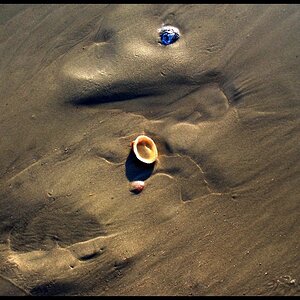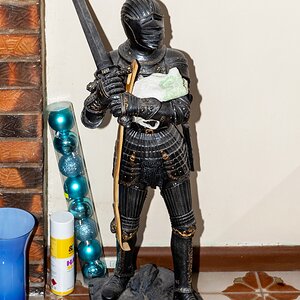Torus34
No longer a newbie, moving up!
- Joined
- Jan 26, 2006
- Messages
- 2,117
- Reaction score
- 37
- Location
- Tottenville, Staten Island, NYC USA
- Can others edit my Photos
- Photos OK to edit
Years back, a rather fierce battle raged in some circles on whether photography was or was not an art. Comparisons between photographers and painters formed a part of the ammunition. Nothing was ever really resolved, as I remember, but it was fun to wade into the melee.
A post in this morning's 'Beginners' section about removing a stray wisp of hair from an informal portrait [Graybeard] brought the old conflict into sharp relief. The digital age and the ability to manipulate pictures in manners unimaginable in the film age has blurred the painter/photographer distinction and, perhaps, abolished it for good.
Consider a painter beginning a new work. Chances are he/she first establishes some sort of sketch on a surface. That done, the sketch is manipulated, using pigment, to flesh it out. This process -- painting in the sketch -- continues until the work is judged complete.
Today's savvy digitalista begins with a sketch, too. It's in the form of a digital photograph displayed on a screen. It, too, is fleshed out with electronic modifications of the image until it's judged complete.
Seen in broad perspective, there's little difference in what's being done by a painter sitting at an easel and a digital photographer sitting before a 'puter. Both are changing an image until it's closer to their heart's desire. At their best, both are trying to 'say' something with the image they work to create. Their tools are centuries apart, but they seek similar goals.
As to whether photographs can say something, I place in evidence Steichen's magnificent B&W photo exhibit, 'The Family of Man'.
A post in this morning's 'Beginners' section about removing a stray wisp of hair from an informal portrait [Graybeard] brought the old conflict into sharp relief. The digital age and the ability to manipulate pictures in manners unimaginable in the film age has blurred the painter/photographer distinction and, perhaps, abolished it for good.
Consider a painter beginning a new work. Chances are he/she first establishes some sort of sketch on a surface. That done, the sketch is manipulated, using pigment, to flesh it out. This process -- painting in the sketch -- continues until the work is judged complete.
Today's savvy digitalista begins with a sketch, too. It's in the form of a digital photograph displayed on a screen. It, too, is fleshed out with electronic modifications of the image until it's judged complete.
Seen in broad perspective, there's little difference in what's being done by a painter sitting at an easel and a digital photographer sitting before a 'puter. Both are changing an image until it's closer to their heart's desire. At their best, both are trying to 'say' something with the image they work to create. Their tools are centuries apart, but they seek similar goals.
As to whether photographs can say something, I place in evidence Steichen's magnificent B&W photo exhibit, 'The Family of Man'.


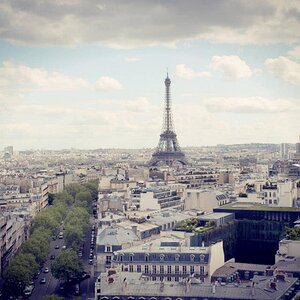
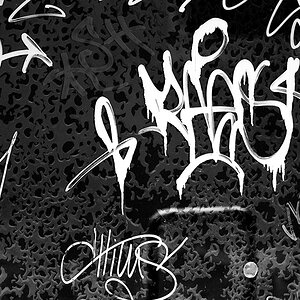
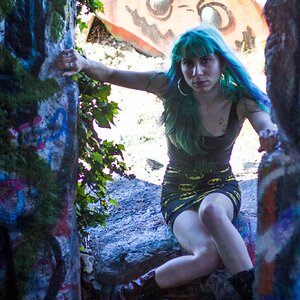
![[No title]](/data/xfmg/thumbnail/34/34079-552f58c1ec0f8485f9c24a5b1db49654.jpg?1619736268)
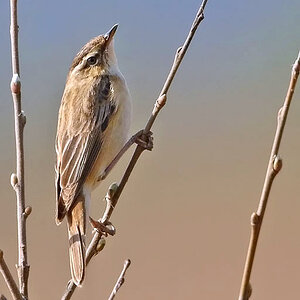
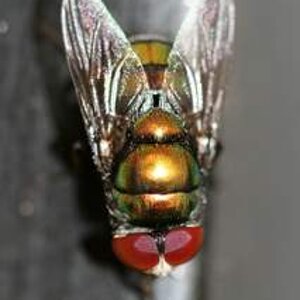
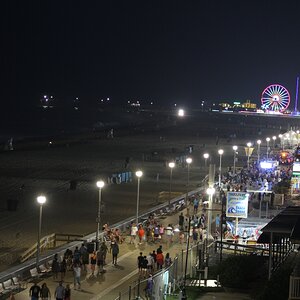
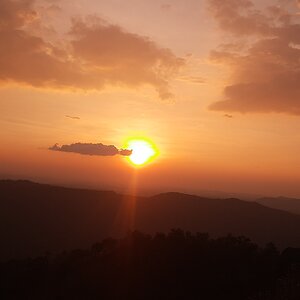
![[No title]](/data/xfmg/thumbnail/36/36966-71220579619c9a335442302fce0e57aa.jpg?1619737842)
